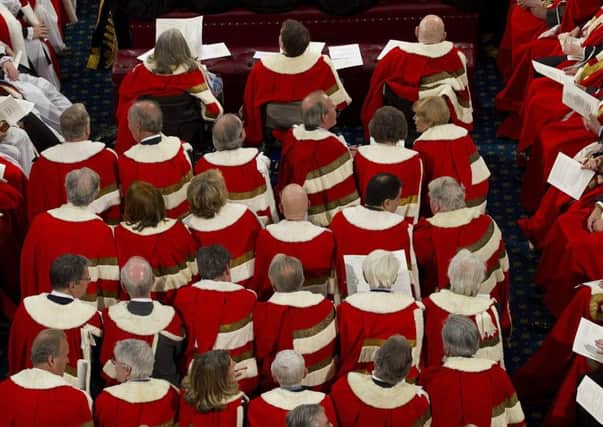Tim Flinn: We don't need dead wood in the Lords '“ let's have the brightest and best instead


That Scotland lacks an upper house is regrettable. Two Scottish houses could use Holyrood on alternate days, as that building is rarely busy with anything really worthwhile (it produced no new legislation between March 2015 to March 2016). However, while we do share the House of Lords with the rest of the UK, many of us find that institution less than satisfactory.
One reason why the Lords lacks popular appeal is because it is mainly filled with unelected people, several of whom apparently sign in regularly more to receive the substantial daily allowance than to benefit the nation with their experience, wit and wisdom. The Lords has been called ‘God’s Waiting Room’, given that faded politicians, officials and chums of various Prime Ministers end their days there.
Advertisement
Hide AdAdvertisement
Hide AdOne solution proposed is for the public to vote in House of Lords members; however, that is likely to produce the ‘same old, same old’ as parties fail to resist the temptation to put up their own dead wood.
Why not instead give the seats to those who have succeeded in worthwhile activities in the real world, but who have never been politicians?
Surely a five year spell to top off a brilliant career in music, sport, science, art, business, medicine, design, building, engineering, police, education, religion, farming, broadcasting, finance, exporting, military, fishing, charitable work, etc, would attract a wide range of hitherto unexploited talent?
House of Lords membership would be automatically offered to all who have reached the top in the real world of work. Where more than one candidate was possible, professional bodies for each sector could decide which of their retirees most merited the honour.
Politicians and voters would be kept well out of things. No one would be obliged to accept the offer (and the strict attendance and contribution requirements attached) – the House of Lords isn’t for everyone.
The membership number, pay and perks would be as for the lower chamber, but rather than party whips, there would be a compulsion to stand down after five years to enable fresh blood.
An important aside is the merit of limiting lower house membership, to two elections say, and for much the same reason: career politicians drain energy and morality from politics. As de La Rochefoucauld reminded us ‘the graveyards are filled with indispensable people’.
A drawback to modern politics is the combative political process and the Machiavellian harshness of life endured by those who seek office.
Advertisement
Hide AdAdvertisement
Hide AdThe often unworthy skills needed to climb the greasy political pole are why such persons often self-identify their unsuitability for office. This proposal counterbalances that.
Tim Flinn is a retired education psychologist. He lives in Garvald, East Lothian.